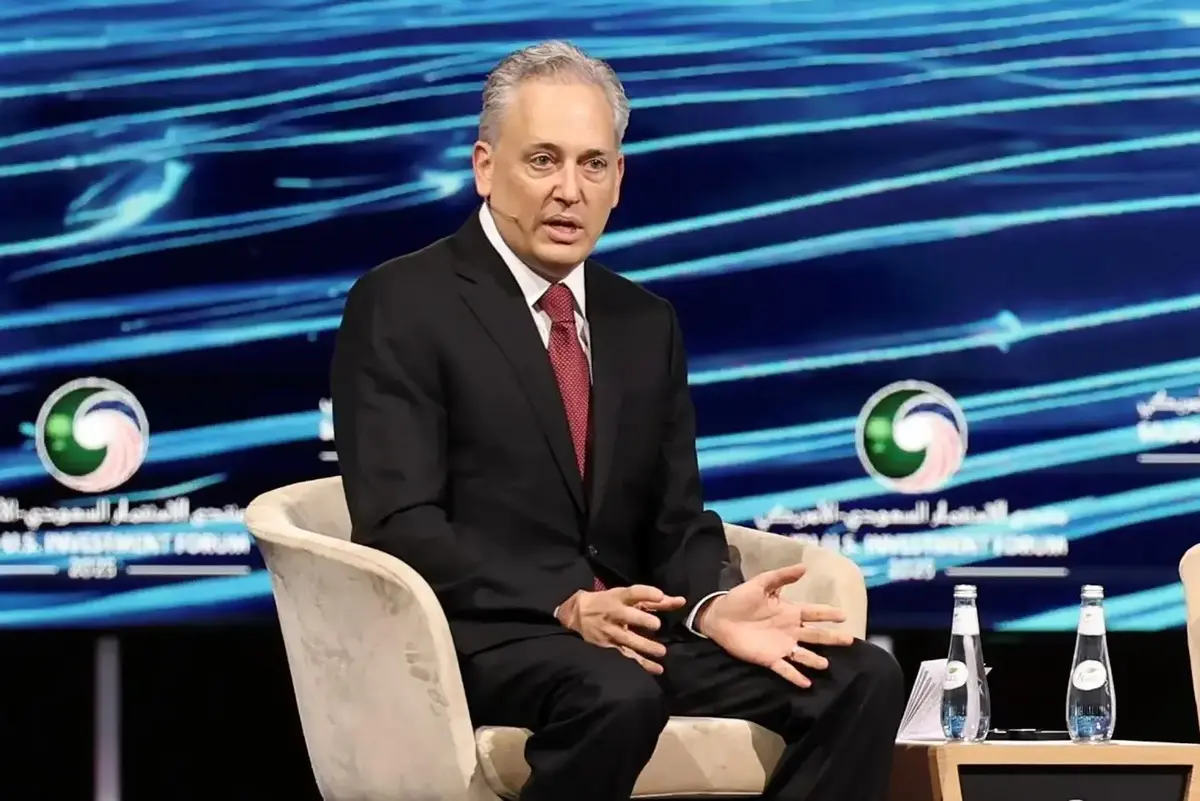U.S.-Saudi Arabia Collaboration: A New Era for AI Innovation
The Shift in U.S. Policy on AI Technology
In a significant development for the tech landscape, David Sacks, White House special advisor for artificial intelligence and crypto, recently highlighted that collaboration with Saudi Arabia is vital for advancing AI and driving global innovation. Speaking at the Saudi-U.S. Investment Forum in Riyadh, Sacks underscored that the U.S. need not block the global spread of its AI chips and technology to address national security concerns.
His remarks came shortly after the Biden administration announced plans to rescind and modify a regulation that had previously limited global access to artificial intelligence chips. Sacks emphasized the spirit of partnership, noting that “the diffusion is not a risk with a friend like Saudi Arabia at all,” thus signifying a shift toward a more collaborative tech policy.
Reassessing Technology Transfer to Allies
For years, U.S. policy had focused on containing the proliferation of advanced technologies to "countries of concern," which had repercussions for its relationships with allies. The initiative known as the Biden diffusion rule restricted the transfer of crucial technology, framed largely as a measure against geopolitical adversaries, especially China. However, Sacks clarified that this policy was never intended to inform relations with allies like Saudi Arabia.
The Biden Framework for Artificial Intelligence Diffusion, launched in January before the close of Biden’s term, aimed to cement U.S. leadership in AI while protecting national interests. Yet Sacks’ recent comments suggest a newfound openness to expand technological exchange, especially with key partners in the Middle East.
Strengthening Tech Ties with Middle East Partners
This shift illustrates a growing U.S. interest in deepening ties with countries like Saudi Arabia, which are pouring investment into their AI infrastructure. Sacks noted that the Kingdom has been actively positioning itself as a hub for emerging technologies, aiming to become a center of innovation outside of traditional powerhouses like the U.S.
This evolving relationship reflects a broader understanding that technological collaboration can boost economic growth and foster innovation, especially in sectors vital to future development. The recognition of Saudi Arabia as a potential ally in AI opens doors for knowledge sharing and resource pooling.
Saudi Arabia’s Role in Advancing AI
During his dialogue with Saudi Arabia’s Minister of Communications and Information Technology, Abdullah Alswaha, Sacks praised the Kingdom’s efforts to cultivate a vibrant technology ecosystem. This collaborative spirit was brought to life during Sacks’ visit to the “Garage” incubator, where he met Saudi entrepreneurs engaged in pioneering work in fields such as AI, robotics, and biocomputing.
By investing in digital infrastructure and embracing cutting-edge technologies, Saudi Arabia is emerging as a formidable player in the global AI landscape. Sacks pointed to specific examples of how these advancements are making a tangible impact in healthcare, including novel applications of AI in genomics and gene therapy to treat conditions like sickle cell anemia.
A Vision for Digital Transformation
Saudi Arabia is firmly dedicated to transitioning from a traditional economy to a digitally-driven one. Minister Alswaha articulated this strategy, emphasizing that innovation, underscored by AI, is at the heart of the Kingdom’s transformation. This aligns with Saudi Arabia’s Vision 2030 initiative, which aims to reposition the country as a global innovation hub.
An essential aspect of this strategic partnership is capacity building. Saudi Arabia is collaborating with leading American companies—such as Google, Apple, and Amazon—to ensure that a workforce equipped with digital competencies is in place. Currently, over 381,000 skilled Saudi digital professionals have emerged from these training programs, fostering an environment ripe for technological advancement.
The Global Model of Cooperation
The discussions at the Saudi-U.S. Investment Forum encapsulate the essence of a partnership that promises to serve as a global model for collaboration in technology, AI, and the digital economy. Alswaha emphasized that through their shared vision, Saudi Arabia and the U.S. are not only redefining their bilateral relationship but also setting a benchmark for international cooperation in the technology sphere.
In this dynamic environment, Saudi Arabia is positioning itself to lead in the development and export of AI solutions that can benefit humanity at large, creating a promising landscape for innovation and technological progress. Through this partnership, the potential for elevating AI capabilities transcends national boundaries, paving the way for a future defined by shared advancements and mutual growth.


